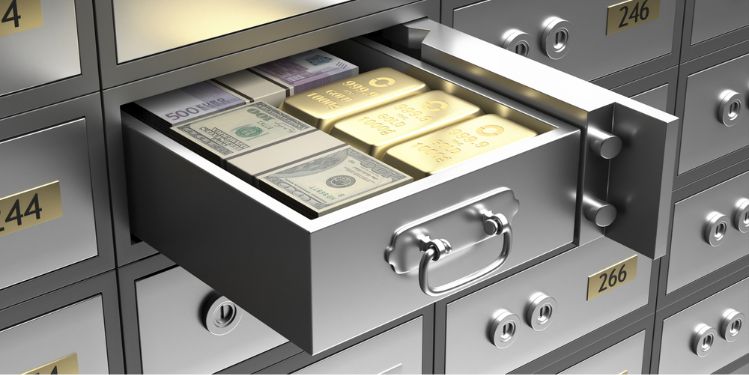Although there is no list of approved investments for retirement plans, there are special rules set forth by the IRS under Internal revenue Code (IRC) Section 408 and 4975 that preclude retirement accounts, including IRAs, 401(k) plans, HSAs, and Coverdells from making certain investments. IRC Section 408 precludes a retirement from investing in collectibles, such as art, antiques, gems, coins, or alcoholic beverages. However, they can invest in certain precious metals only if they meet specific requirements. (IRC Section 408(m)).
- Certain precious metals and coins are IRS approved to be held in a Self-Directed IRA
- McNutly reaffirms that one should not hold IRA-owned metals at home
- By self-directing your IRA, you can invest in alternative assets, including previous metals and coins
What Type of Precious Metals and Coins are IRS-Approved Investments?
In general, pursuant to IRC 408, a retirement account is permitted to invest in one, one-half, one-quarter, or one-tenth ounce U.S. gold coins, or one-ounce silver coins minted by the Treasury Department. It can also invest in certain platinum coins and certain gold, silver, palladium, and platinum bullion of a minimum fineness of 0.999. The IRS specifies exactly what is allowed:
- (i) a gold coin described in paragraph (7), (8), (9), or (10) of section 5112(a) of title 31, United States Code,
- (ii) a silver coin described in section 5112(e) of title 31, United States Code,
- (iii) a platinum coin described in section 5112(k) of title 31, United States Code, or
- (iv) a coin issued under the laws of any State, or
- any gold, silver, platinum, or palladium bullion of a fineness equal to or exceeding the minimum fineness that a contract market (as described in section 5 of the Commodity Exchange Act, 7 U.S.C. 7) requires for metals which may be delivered in satisfaction of a regulated futures contract, if such bullion is in the physical possession of a trustee described under subsection (a) of this section.
The Technical and Miscellaneous Revenue Act of 1998 allowed retirement account owners to invest their retirement account assets in certain platinum coins as well as certain gold, silver, platinum, or palladium bullion provided the precious metals are held in the physical possession of the financial organization or depository. With respect to state minted coins, the coins must be held in the possession of a third-party other than the I holder. The Technical and Miscellaneous Revenue Act of 1998 does not state that the third-party holding the state minted coins must be a bank, but the holder must not be the retirement account holder.
If your Self-Directed IRA purchases coins or precious metals not approved by the IRS under IRC 408(m) and the investment is treated as a purchase of a collectible, the amount invested is considered distributed to you in the year invested. You may also have to pay the 10% additional tax on early distributions if you are under the age of 59 1/2.
The McNulty Case
In the past several years there has been several online companies advertising that you can hold precious metals and/or coins owned by an IRA at your home or in your personal possession. However, the recent Tax Court case, McNulty v. Commissioner, 157 T.C. No. 10 (November 18, 2021) confirmed what the majority of the Self-Directed IRA industry believed that an IRA owner cannot take personal possession of any IRA owned IRS-approved metal, including precious metals or coins.
Tips for Buying Precious Metals in a Self-Directed IRA
Below are a few important tips for using a Self-Directed IRA to purchase IRS-approved precious metals or coins:
- Make sure the metals or coins you purchase are IRS approved pursuant to IRC 408(m)
- Do NOT hold the metals or coins at home or in your personal possession (McNulty case)
- Only use a U.S. bank or depository
- Do not hold precious metals at a foreign bank or depository
- There is no IRS guidance on holding IRS approved precious metals or coin in a safe deposit box in the name of the LLC. The argument for it is that the metals will be in the “physical possession” of a U.S. bank. However, the IRS has not yet offered their position on this approach. The safest approach is to hold all IRS approved metals or coins at a U.S. depository
- All expenses and related costs associated with the purchase of the IRS approved metals or coins should be paid with retirement account funds – no personal funds should be used.
- Keep good records relating to the self-directed retirement account precious metals investment.
- All income, gains or losses from the retirement account precious metals investment should be allocated to the retirement account owner of the investment
- Make sure you perform adequate diligence on the precious metals you will be purchasing especially the trustworthiness of the precious metals dealer.
- Beware of fraud if purchasing precious metals from a promoter.
Using a Self-Directed IRA to invest in precious metals can offer IRA owners a number of attractive financial and tax benefits. For example, IRA owners gain the opportunity to better diversify their retirement assets, invest in what one knows and understands, protection from inflation, as well as the ability to generate tax-deferred or tax-free (in the case of a Roth) gains.
The list of helpful tips outlined above should help Self-Directed IRA investors looking to buy precious metals with a guideline of how to keep their IRA from running afoul of any of the IRS rules.











